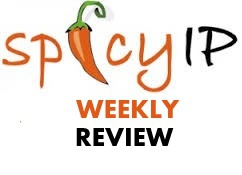This week’s highlight was our continuing coverage of the Indian government’s private assurances to US industry players that the Patent Office would no longer issue compulsory licenses for “commercial” purposes. Inika Charles flagged the issue in her post on the ongoing Special 301 process before the US Trade Representative, followed by Prof. Basheer’s hard-hitting critique of the current framework that allows for the possibility of such assurances being made in the first place. He identifies the dearth of patient data as the root cause behind a possibly systemic inability for CL applicants to make out a compelling case for themselves. He also argues that the government, being best equipped to collect large-scale public health data, must not abdicate its responsibility on this front.
Kiran opened proceedings this week with her post on the Delhi High Court’s ruling on the meaning of a “person aggrieved” for the purpose of filing for rectification under Section 47 of the Trade Marks Act, in which Justice Manmohan Singh cited copious precedent to tear into the IPAB’s narrow construction of the statute.
Next, Rahul Bajaj chronicled the Houzz v. Houzify dispute, in which a US-based company asserted a trademark right and successfully requested Facebook to deactivate the account of a Bangalore-based startup. Rahul summarises the facts of the case before making a broader argument about the power of online intermediaries, and the fact that they continue to wield considerable influence despite the fact that their legal “responsibility” for trademark infringement, etc. has been substantially reduced by Shreya Singhal.
Aparajita then informed us of the Trade Marks Registry (Delhi)’s decision to implement a pilot project in which 500 oppositions and rectifications would be referred to mediation and conciliation by consent.
Prof. Basheer rounded up our week with a post on the use of technical experts under Section 115 of the Patents Act in the Supreme Court’s hearing of Roche v. Cipla. In it, Cipla pressed for the appointment of a scientific advisor. The court, upon hearing Roche, expressed the opinion that the appointment could take place if a need was felt.
International Developments
- WIPO’s country-wide statistics reveal that the US continues to outperform other countries in terms of the sheer number of international patent applications filed, at over 57,000 over the last year. Indians filed a comparatively meager 1,423.
- A children’s hospital in Canada has settled out of court with a US-based gene patentee over gene-based tests, in a first for a country in which the validity of gene patents is still unclear.
- A Chinese toilet company that holds a trademark on the word “Trump” in relation to its products reportedly fears being sued by the Republican candidate.
- Spotify has finalised a new royalty administration settlement with its songwriters and publishers, but with a crucial caveat – they cannot bring copyright claims against the company.
